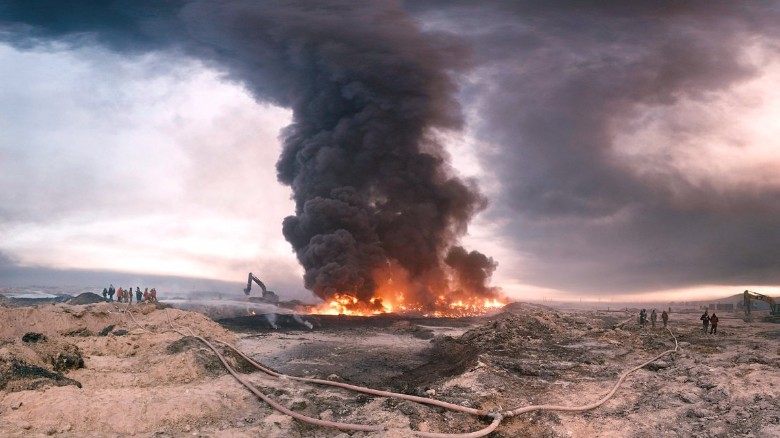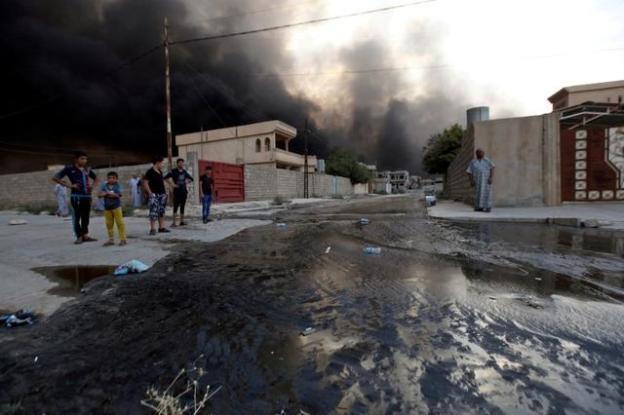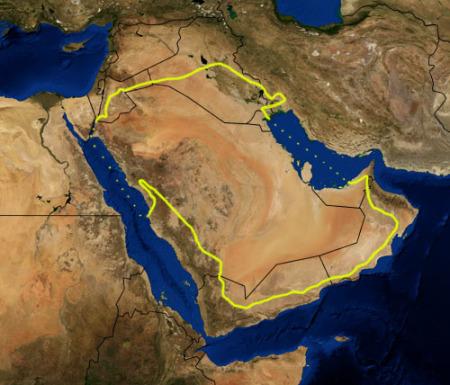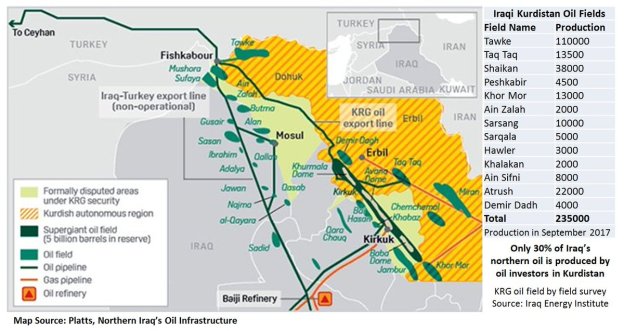A biological remediation pilot project seeking to enhance nature’s own ability to clear up oil spills in Iraq’s conflict-affected areas has been launched in Kirkuk, Iraq…This UNEP initiative seeks to harness naturally occurring soil bacteria as a powerful natural ally to decontaminate poisoned land. Over three years ago in summer 2016, the residents of Qayyarah—a small town of around 25,000 people, some 60 km south of Mosul—were caught in the line of fire as so-called Islamic State fighters torched nineteen nearby oil wells. So thick were the clouds of smoke, that people could not distinguish day from night for weeks in what infamously came to be known as the “Daesh winter”. Rivers of crude oil flowed through Qayyarah’s streets and into seasonal wadis as oil wells spewed tens of thousands of barrels of oil relentlessly for months. The specter of an even worse environmental catastrophe was heightened as the oil slick migrated to less than three kilometers from the Tigris River, Iraq’s water lifeline.

Following an epic battle to control the oil fires that took nearly a year, North Oil Company, which manages the oil fields of northern Iraq, is currently collecting an estimated 20,000 tonnes of remaining oil waste in Qayyarah into around a dozen large pits. Progress, however, has been slow and pools of heavy viscous oil remain on the doorsteps of entire neighborhoods and households, who complain about the impacts of noxious fumes on their children’s health.
“In some places, the layer of heavy oil is two to three meters thick, and long stretches of wadi channels are now effectively tarmac roads on which cars can be driven,” observed Mohammed Dawood, head of Qayarrah oil refinery’s environmental unit. Furthermore, Environment Ministry officials expressed concern that exceptionally heavy rains and flash floods of the 2018/19 winter season washed out oil from the holding pits into the Tigris River.
While oil production restarted in Qayyarah immediately after the conflict ended in June 2017, reaching currently an estimated 40,000 barrels per day, little has been done to clean up the conflict’s toxic aftermath… The UN Environment Programme in collaboration with the UN Assistance Mission in Iraq delivered a four-day hands-on training workshop on remediation of oil spills by the use of bacteria in September 2019. “By adding nutrients from manure, bulking agents like wood chips and water, we are simply creating the ideal conditions for bacteria to thrive and speeding up the natural process of breaking down the oil,”
Excerpts from Microbes offer hope of cleaning up Iraq conflict’s pollution legacy, UNEP Press Release, Oct. 23, 2019


